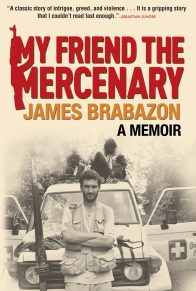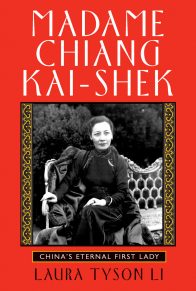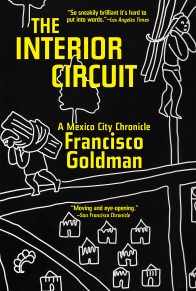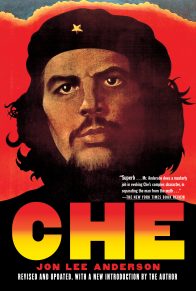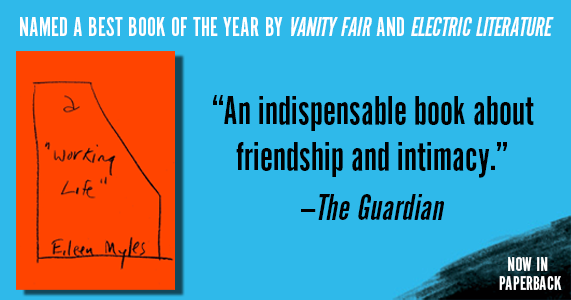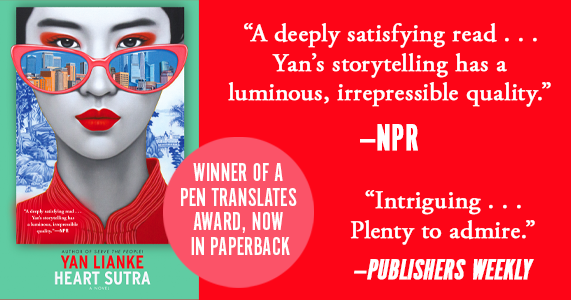My expulsion from Zimbabwe was physical and frightening, but the actions of Mugabe’s agents could not change my deep feelings for the country.” Aaron Ufumeli/AFP/Getty Images
“You are continuing to write bad things about Zimbabwe,” the immigration officer says to me, leaning toward me and narrowing his eyes in a menacing way. Over the past year I have been persistently harassed by President Robert Mugabe’s government. I have been arrested, jailed, put on trial, and, eventually, acquitted. Now sitting in Linquenda House, a shabby government office block in central Harare, I don’t want to let the officer suggest my reporting has been less than honest and fair.
“Not about Zimbabwe,” I counter. “My stories may be critical of the government, but they’re not bad about Zimbabwe. I’ve written the truth about what’s going on here. You and I both know it.”
We both also know that my articles in the Guardian over the past three years have infuriated Mugabe and his ministers. That is what this meeting is all about.
My reports have highlighted torture, rape, and murder by state agents. The government has categorically denied any such abuses, but my stories, and those of other journalists, have conclusively uncovered systematic state violence. Through my articles I have tried to hold the government accountable for its actions and to highlight the brave struggle for a return to democracy by many Zimbabweans. Supporters of the opposition party, leaders of women’s groups, human rights activists, church leaders, and ordinary people have all made their own stands for democracy and have courageously faced frightening repression. Far from writing “bad things about Zimbabwe,” by writing about their heroic efforts in the face of terrible threats and violence from the state, I believe I have been reporting the best of Zimbabwe.
I am aware that this is not the time for a discussion of my writing. Evans Siziba, the tall immigration officer with the threatening stance of a boxer, has been hounding me for a year. Ten days ago, Siziba turned up at my house at night. The quiet residential street was especially dark because the streetlights had not worked for nearly a year. When my wife, Dolores, walked down the drive to answer the gate, she was startled to see four plainclothes officers. Behind them were four vehicles, including a large van with blacked-out windows.
It could only mean they were planning to pick me up illegally. Over the past months, I had written many stories about Zimbabweans who had been taken from their homes by plainclothes government agents who beat and tortured them. We knew from the experience of friends that such shadowy night visits meant trouble.
In fact, Siziba was not an immigration officer at all. We knew from government sources that he was really an agent of the much-feared Central Intelligence Organization, Zimbabwe’s secret police, who answer directly to Mugabe and place agents in key government departments. I had interviewed many victims of CIO interrogations and seen their wounds: cigarette burns and open sores where electrodes had been placed on their fingers, toes, ear lobes, tongues, and genitals. Siziba had not come to my home to have a civilized conversation about my writing.
Siziba told Dolores that he wanted to see me. He refused to show her any identification papers, nor would he say why he wanted to speak to me. Recognizing him from our earlier encounters, she told him I was not at home. He replied that he would wait for me to return. Dolores came back to the house and immediately called our lawyer, Beatrice Mtetwa.
I was not about to comply with Siziba’s illegal actions. I had to leave the house without him seeing me. Somehow I managed to finish the last paragraphs of a story I had been working on and e-mailed it to the Guardian. Grabbing my cell phone and some money, I went through our laundry room and out the back door. I looked at the wall behind my herb garden; it towered above me. I carried out a stepladder but it left me still short of the tiles at the top of the wall. Jumping up, I grabbed the top and then hauled myself over. Slowly I let myself down the other side. I dangled for a moment and then dropped about ten feet to the ground. My belt buckle caught on the wall, throwing me off balance, and I landed on my side. I picked myself up and stood listening. The neighboring house was very close to the wall, but the people inside were playing music quite loudly so they didn’t hear me, and fortunately they did not have any dogs. I hurried down their driveway unnoticed. As I let myself out at the gate, I saw a man standing at the corner near our house. I casually walked the other way until I came to a dark corner, where I used my cell phone to call a friend. He agreed to pick me up right away.
I took a deep breath and looked at the clear sky. Zimbabwe was entering its winter; it got dark early and the night air was chilly. I could see the stars of the Southern Cross and Scorpio while I watched the fruit bats fly past. The night was very still and I could hear the drumming and singing of a group of Apostolics, a religious sect that would meet in open fields nearby, dressed in white robes. This was my neighborhood, but now I was forced to hide.
My lawyer, Beatrice, arrived at our house within minutes. Later she would tell me how she had asked Siziba and the others to show their identification and state what they were doing but they refused. She insisted that it was their legal obligation, but Siziba simply said they would stay at our gate until I returned.
By then my wife had called other journalists and told them about the gang at our gate. Soon a dozen or so reporters from Zimbabwean newspapers and the international press were also at the entrance to our property, watching to see what these government agents would do. Frustrated by the presence of so many witnesses and visibly angry, Siziba announced he was leaving to get ‘reinforcements.”
The friend who picked me up drove me to the home of another friend, where I burst in on a family dinner and was promptly invited to join it. I explained my situation and went to a quiet room to phone Dolores, Beatrice, and the Guardian. These good people insisted I stay with them that night, even after I described all the possible risks of a visit to their home by the CIO or the police, or even Mugabe’s gangs of war veterans.
For ten days I eluded Siziba and his crew. I knew I had done nothing wrong or illegal, even by Zimbabwe’s draconian laws. There was no warrant out for my arrest–in fact my lawyer had court orders protecting me. I was in the bizarre and often frightening situation of evading government agents who were acting illegally.
During the day I tried to carry on as normally as possible. I managed to file a story, cover a demonstration, and do several radio interviews. I even did some early-morning jogging along my favorite routes and met friends for lunch. But by then I had become a highly recognizable figure in Zimbabwe, especially as the government was printing stories about me in the state press, which charged that I was on the run. When people saw me they came up to congratulate me and to offer me encouragement, so Dolores insisted I wear a hat with a floppy brim, and when friends drove me into Harare’s city center I lay on the floor of their cars. But these were really halfhearted gestures. I had always prided myself on doing my work openly and aboveboard and was uncomfortable about being “undercover.” Dolores and I did not sleep at home.
The nights were difficult, knowing that the CIO had a way of picking people up after dark. We tried not to stay at any one place for more than a couple of days to avoid detection, so the rooms were always unfamiliar. We were in touch with a network of ‘safe houses’ where other people had stayed when they were trying to avoid being picked up. I was just one of many people dodging government agents; others included opposition supporters, church leaders who had spoken out against government abuses, human rights activists, fellow journalists, and former police officers who had exposed torture and murder committed by uniformed officers. I was in good company.
At some of the places where we stayed people wanted to talk about what was happening in Zimbabwe and what would bring change. They would become passionate about their country and discuss different ways that Mugabe might be ousted and democracy reestablished. Everyone seemed to think that change was just around the corner.
I made a couple of strategic public appearances. On the day that the state-controlled Herald newspaper ran a front-page article declaring that I was in hiding and a fugitive from justice, I proved it wrong by attending a large diplomatic reception where I met with many African and European ambassadors. “I am a fugitive from in justice,” I said, reminding them that the courts had found that I had the legal right to live and work in Zimbabwe. By evading government officers who were acting outside the law, I was merely trying to get the government to deal with my case according to its own laws.
We talked about Zimbabwe’s worsening economy, with inflation at 350 percent and zooming higher, about the food and fuel shortages, and the national strike planned to shut down the country for a week. We also discussed movements that challenged Mugabe’s grip on power. Other African countries were encouraging him to hold talks with the opposition party and to accept that new elections, fully free and fair, needed to be held. Many expressed optimism that things would improve. The African diplomats were friendly and frank about the need to put pressure on Mugabe, but we all knew that they would still issue public statements of support for him, in the name of African solidarity.
I ducked away from the reception, elated by the encouragement I received, but my high spirits evaporated when my cell phone rang. It was our host of the night before, fear cracking his voice, warning me not to return to his home: two men were hanging around the front of his driveway. I called Dolores and told her not to go back there. I was keenly aware that each day the CIO and the Mugabe government failed to apprehend me, the stakes were getting higher. I was worried that my colleagues, family, and friends would be attacked instead of me. “The longer this goes on, the more dangerous it becomes for you and for everyone around you,” said Beatrice when we managed to meet. “It could be your life.”
Beatrice generally made light of any danger, but this time she was serious. I knew that she, too, was under threat. She was followed as she went about her business during the day and when she went home at night. I was not her only high-profile client: she was also representing the mayor of Harare, Elias Mudzuri, who was fighting a battle with the government to run the city. As the candidate for the main opposition party, the Movement for Democratic Change, Mudzuri had been elected in 2002 by a whopping 80 percent majority, but the government was determined to prevent the opposition from managing the capital city. Mudzuri had been jailed for three days and then released without charge; then the judge who dropped the spurious charges against Mudzuri found himself in jail on equally questionable charges. Mugabe’s toughs invaded the mayoral offices, where they beat up some city officials and locked Mudzuri out. Despite court orders stating that Mudzuri had the right to function as the mayor, police stood by and refused to take any action. Under these circumstances, merely arranging a meeting with Beatrice was difficult. We made plans on our cell phones, which were more difficult to bug than our fixed lines. We met in an office of a large Harare building where she went in one entrance and I went in another, but it was becoming more dangerous as the days went on. Many people had suggested that I simply leave the country, possibly seeking protection from the American embassy to ensure that I got out safely. But I did not want to give the impression that I had anything to hide or was running away. Beatrice wanted to pursue and, if necessary, exhaust every legal avenue to get fair treatment for me. Now we decided to go to the Immigration Department the next day. Beatrice and I tried to call Siziba but found that he was never in his office at Immigration, his absence making us all the more suspicious that he was not a bona fide immigration officer. Eventually I succeeded in reaching him on his cell phone. He immediately started shouting, accusing me of hiding from him, until I took the wind out of his sails by agreeing to come in to see him the next morning. We knew that I could be forcibly, if illegally, expelled from Zimbabwe at that meeting, but we could not see any better way to deal with it than head-on.
This meeting with Beatrice lasted until dusk, and when I left I went back to my house. I had other places to stay but I felt a burning need to be at my own home and to sleep in my own bed. I wanted to be with my dogs and wander through my garden. This was what the government was trying to take away from me and I was determined not to let go of it. It seemed there weren’t any agents hanging around our street; they must have been looking for me elsewhere.
I got a rapturous reception from our three dogs. I knew this might be my last time with them; certainly my oldest dog, my faithful black Labrador, was on his last legs and I would not see him again. I loved the home that Dolores and I had made together, and I could not bring myself to accept that I would be torn away from the house, the garden, the dogs. When friends and colleagues phoned, I explained in a matter-of-fact tone that I was going to Immigration the next day, but I could not bring myself to suggest that this might be good-bye. I found it much easier to do an interview with a radio station, describing my situation and legal status in detail and declaring that I was determined to remain in Zimbabwe. The moon was full that night and my garden was bathed in the lunar glow. I wandered through it, admiring the new growth, especially of the acacia trees I had planted. I made mental notes of things I wanted to do: tend some young palm trees, put in some seasonal flowers, and add more goldfish to the little pond. This was still my home. Dolores and I cooked dinner in our own kitchen and ate at our own table. I slept well that night.
The following morning Beatrice and I were in determined spirits when we walked into Linquenda House, the tall, increasingly shabby office block in central Harare which houses Immigration and many other government departments. The well-maintained government building that I had encountered when I first arrived in Zimbabwe in 1980 had become run-down, with long rows of missing floor tiles and peeling wall coverings. Fluorescent lights flickered uncertainly overhead and others were just burned out. Only one of the four elevators was in service. The dilapidated state of the building was a symbol for how things had changed in Zimbabwe.
In contrast to the corridor outside, the office of Elasto Mugwadi, the chief immigration officer, was well appointed and spacious, with a large couch and comfortable chairs. We were met by Mugwadi himself, together with Siziba. A trained lawyer, Mugwadi took pains to show he was proceeding legally. Prior to the meeting, Beatrice had told me he would try to show that he was going by the rules, because he knew he could be struck off the list of legal practitioners if it were proved he did anything illegal. Mugwadi was pleasant and cordial and maintained a businesslike atmosphere. “We just want to clarify a few points about your residence permit,” he said. “We want to make sure that everything is in order.”
“If it is just a matter of clarification, then why did your officers come to my client’s house after dark?” asked Beatrice. Mugwadi claimed not to know anything about that matter, and Siziba remained silent. Mugwadi repeated that he simply needed some information about my residence permit. Beatrice insisted that I had a valid permanent residence permit and the courts had ruled I had the right to stay in the country. Mugwadi said he just wanted to check a few details. He asked to see copies of some of my articles and we agreed to bring them to his office later that day. The negotiation seemed so smooth that I actually began to think that Beatrice and I could answer Mugwadi’s questions satisfactorily, provide the stories and paperwork he wanted, and put the difficulties of the past week behind us.
But then I asked for my passport. Mugwadi turned to Siziba and said I must get it from his deputy. My hopes dissolved. Mugwadi suddenly declared he had a meeting elsewhere in town. I thought he looked nervous as he grabbed his briefcase. Quickly, very quickly, he left his office.
The atmosphere changes immediately. Siziba is now in charge. Beatrice and I follow him across the hall to his small office. A portrait of Robert Mugabe glares from the wall and in the background a radio plays the state mouthpiece, the Zimbabwe Broadcasting Corporation. Another officer sits next to Siziba. Where Mugwadi was amiable and civil, Siziba glowers. In a voice full of menace he begins to accuse me of criticizing the government. He refuses to listen to my rejection of his charge. He simply tells me I have been declared a prohibited immigrant and will be deported.
At this Beatrice leaps up, as if she were in court. “You can’t call this a deportation. This is completely illegal,” she says. “You know I have court orders saying this is illegal.”
Siziba shrugs and says, “This is what we are going to do.”
“When will you expel him? Where will he be taken?” Beatrice demands. It is not for nothing that she is called “the rottweiler” in court circles. “He must go home and pack his bags. He has lived in this country for more than twenty years; he needs at least twenty-four hours to get ready.”
“That’s not possible,” says Siziba, raising his voice. “He will be in our custody.”
“Where will you take me–to the airport?” I ask, struggling to suppress a rising panic. I always knew something like this might happen, but it is alarming to feel it actually taking place. I was thrown in jail in Zimbabwe a year ago. The thought of being in the custody of these men is not pleasant.
“Is that where you want to go, to the airport?” asks Siziba’s assistant, leaning forward with a sinister grin. “We might have some other place to take you. Where else do you think we could take you?”
“The airport is the only place you could take me,” I reply, knowing full well that it is not.
“Then you have nothing to worry about,” he says in a sneering way that is far from reassuring.
‘my passport should be returned to me,” I insist.
“We’ll give it to you later,” says Siziba, who gets up abruptly and with his assistant walks out of his office.
Beatrice and I are now alone, sitting in front of his empty desk. I am stunned. It is left to my lawyer to say what I still cannot believe. “They’re kicking you out illegally,” says Beatrice. “No wonder Mugwadi left so quickly: he didn’t have the guts to do this himself.” Beatrice tells me she will go back to the courts and get a fresh order to stop this action. She has already prepared the affidavit.
When we step out of the office, the corridor is no longer empty. We are immediately surrounded by police officers. Beatrice stands right next to me, steadfastly refusing to let the men push her away. We crowd into the ramshackle elevator, which shudders to the ground floor. I am pleased, at least, that we are going out through the main foyer onto Harare’s bustling Nelson Mandela Avenue. Word has spread that I am at Immigration and outside a band of reporters, photographers, and cameramen, all colleagues and friends, jostles to get a clear view of what is happening to me. Each face is familiar and I can recognize even those obscured by their cameras. After being part of that crowd for many years, it is a shock to realize that I am not free to join them. I am on the other side of the news line. They are my protection now. If the government is going to throw me out illegally, I am determined to let them know what is going on.
“I have been declared a prohibited immigrant and the government is expelling me,” I tell the press pack, who begin scribbling notes and taking photos. “This is not the action of a government–” and at that the police grab my arms and shoulders and brusquely drag me away from Beatrice and the crowd. I know this is my only chance to say anything to the press, so I struggle to regain my balance and continue, now shouting: “. . . that is confident of its own legitimacy. It is a government that is afraid of a free press–” The officers nearly lift me off my feet and the scuffling becomes more intense. I somehow manage to keep shouting, “It is a government that is afraid of independent and critical reporting!”
By now I have been dragged to a waiting car. I try to resist as the police shove me into the car and they punch, hit, and kick me. Soon I find myself in the back seat, flanked on either side by plainclothesmen wearing dark glasses. Outside the window I see the reassuring figure of cameraman Michele Mathison, whom I have known since he was a boy, recording the fracas.
Tires squeal as the car zooms off at high speed, fighting through the busy traffic. I straighten my rumpled blazer and try to gather my thoughts but the passenger in the front seat turns around and throws a dark jacket over my head. I push it away and struggle to keep my head free. The two men beside me pin my arms down and hold the jacket firmly around my neck. The man on my right thumps me hard on the back. “The time for games is now over,” he says. Suddenly I feel vulnerable and frightened.
I am very familiar with Harare’s roads and attempt to follow where we are going, but after several quick turns I am disorientated. Peering through my shroud, I can just make out the shapes of cars and trucks as we speed by. Just take me to the airport, I keep thinking, just don’t take me anywhere else. In the past month I have interviewed several prominent Zimbabweans, including four opposition members of Parliament, who had been seized by CIO agents and had hoods put over their heads. Invariably they were taken to rural police stations and severely beaten and subjected to electric shocks to the point of convulsions. If the CIO can take an M.P. from the steps of the Parliament building and torture him, maybe they will do it to me.
Suddenly our car makes a sharp turn. From the bumps and potholes I can tell that we are on a dirt road. As if in answer to my fears, the driver says, “We’re going to a special place.” The others snigger ominously.
It is stifling under the jacket and I am sweating, from the heat or fear or both. I wipe my clammy palms on my jeans. I straighten my shoulders and take a deep breath. I must not let them know I am scared. But I begin to imagine bruising blows to my body and the singeing sting of electric current. Stop that, I tell myself. You can get through this. I remind myself that others who have been abducted suffered torture but they were not murdered. Eventually they were released, bloodied and traumatized but alive. Whatever might be inflicted upon me, I tell myself, I’ll just have to endure it.
After what seems like an eternity the car swings sharply and we are back on a smooth, tarred road. Through the jacket I glimpse the fleeting image of white columns on each side of the road. My heart soars. It is the Independence Arch! The airport lies ahead of us!
I am led into the airport with the hood still on, groping unsteadily to find my way, and taken to a small room in the basement. When the hood comes off I see I am in a little cubicle with three chairs and in one corner some empty bottles, one of cheap local brandy and two Coke bottles. The men from the car shove my arms over to two other men. I cannot find any sign of their intentions in their blank faces. I take a deep breath and try to remain calm.
We wait in that tiny space for hours. When I stand up to stretch my legs, they order me to sit down. Later they allow me to go to the toilet, following me closely. We begin talking and I keep the conversation bland, centering on the weather and sports. I gather they intend to go out tonight, so I figure I might be released by then. They realize I know a bit of the Shona language and a bit more about the culture. I try to interact with them in order to find out what is going to happen. I have no illusions that a conversation will change how I am treated, but it can’t hurt to connect with them in some way.
Eventually they begin asking me questions, which I answer carefully, wanting to engage them but not wanting to infuriate them. Nor do I want to provide them with any information that might be used against me or anyone else.
“You must know a lot of famous people. What do you think of Henry Olonga?” asks the bearded guard, referring to the black Zimbabwean cricket star who, together with his white teammate Andy Flower, had worn a black armband at the opening of the Cricket World Cup games in Harare a few months earlier, to mourn “the death of democracy in our beloved Zimbabwe.” I give my guards a straight answer, saying that Olonga is a dedicated and principled young man of strong Christian faith who was doing what he thought was right. Amazingly, they do not contradict me.
“What do you think of Oliver Mutukudzi?” asks the younger guard about Zimbabwe’s musical superstar, some of whose songs have been banned by state broadcasting for being too critical of Mugabe.
“He is a very talented and committed musician who wants to bring people together,” I say. I am surprised when they nod in agreement. More questions soon follow.
“Why is everything so expensive? Why is fuel so scarce and so many other things in such short supply?” asks the bearded one.
“Because the economy is not being managed properly,” I respond.
“When will the economy improve?” he asks.
“When this government changes its policies or there is a new government that runs things properly,” I say, adding, “the Zimbabwean economy is fundamentally strong and all it needs is good management and it will do well.”
“But would the opposition be able to run things well?” asks the younger one. “Aren’t they unpatriotic?” Their questions seem genuine and their na’vet” is disarming. I explain that the opposition party, the Movement for Democratic Change, is trying to bring about change through peaceful, democratic means. They ask me about opposition leader Morgan Tsvangirai: isn’t he uneducated and stupid? I say many people are not able to get good educations but that does not mean they are unintelligent. Tsvangirai may not have gone to college, but I find him intelligent in analyzing Zimbabwe’s problems.
These men are security agents, but it is clear they are as confused as anyone else about Zimbabwe’s spiraling economic and political crisis. Even Mugabe’s own henchmen can sense that everything is going wrong in their country. I have never heard CIO agents question the status quo in this way.
“What will bring change?” asks the younger, more curious one when the other has gone to the toilet.
“When the country can have free and fair elections and the people can freely choose a new government,” I tell him.
The hours drag on and I realize that I might be held in the basement overnight. It is after 9 P.M. I become even more worried with the return of the men who hooded me in the car. They take me upstairs and into a room where immigration officials are taking a break and eating their dinners. “We know what they are doing to you is illegal,” says one official when the others leave the room. “We know your lawyer got a court order today saying you must not be deported.”
Then the airport’s senior immigration official comes to the room with my guards from the car. They accompany me to the departure gates.
“Andy, ANDY!” Although it is very faint, I immediately recognize Dolores’s voice and I turn to see her waving to me, far down the hallway. I pull away from my guards and start toward her. And there is Beatrice, her petite figure charging through two different sets of security men, waving a sheaf of papers. “I have a court order!” she shouts. “The judge says he must not be deported. This action is illegal.” One immigration officer actually deserts her desk and runs away from Beatrice. Everyone else in the passageway stops and stares.
Startled and worried by the commotion, the guards grab me and others suddenly appear and pull me toward the plane. “That’s my lawyer. She says this is illegal,” I shout.
“We don’t care about any court order,” replies the immigration officer. “Just get on the plane.”
Still struggling, I am pushed over the boarding plank onto the aircraft. I tell the Air Zimbabwe crew that this action is illegal, that there is a court order prohibiting it. They refuse to give me my passport and push me away from the door, which is quickly shut and secured. The crew escort me to my seat while stewards and startled passengers stare at me. I realize there is no more I can do. I am being expelled from Zimbabwe despite the fresh court order that Beatrice obtained. Within a few minutes the Air Zimbabwe jet pulls up in the air and starts its journey to London.
I am seated in the middle aisle and cannot see Harare’s twinkling lights dwindle as we fly up and away. But I do not need to. Zimbabwe is indelibly etched in my memory. I am steeped in this country; it is in my pores. More than just the physical look and feel and smell of the land, I have a deep sense of what the country stands for: liberation, majority rule, democracy, and human rights. This is what Zimbabwe meant when it won independence in 1980 and it is what so many are valiantly fighting to regain. This conviction of what Zimbabwe stands for cannot be erased simply by forcing me out of the country.






